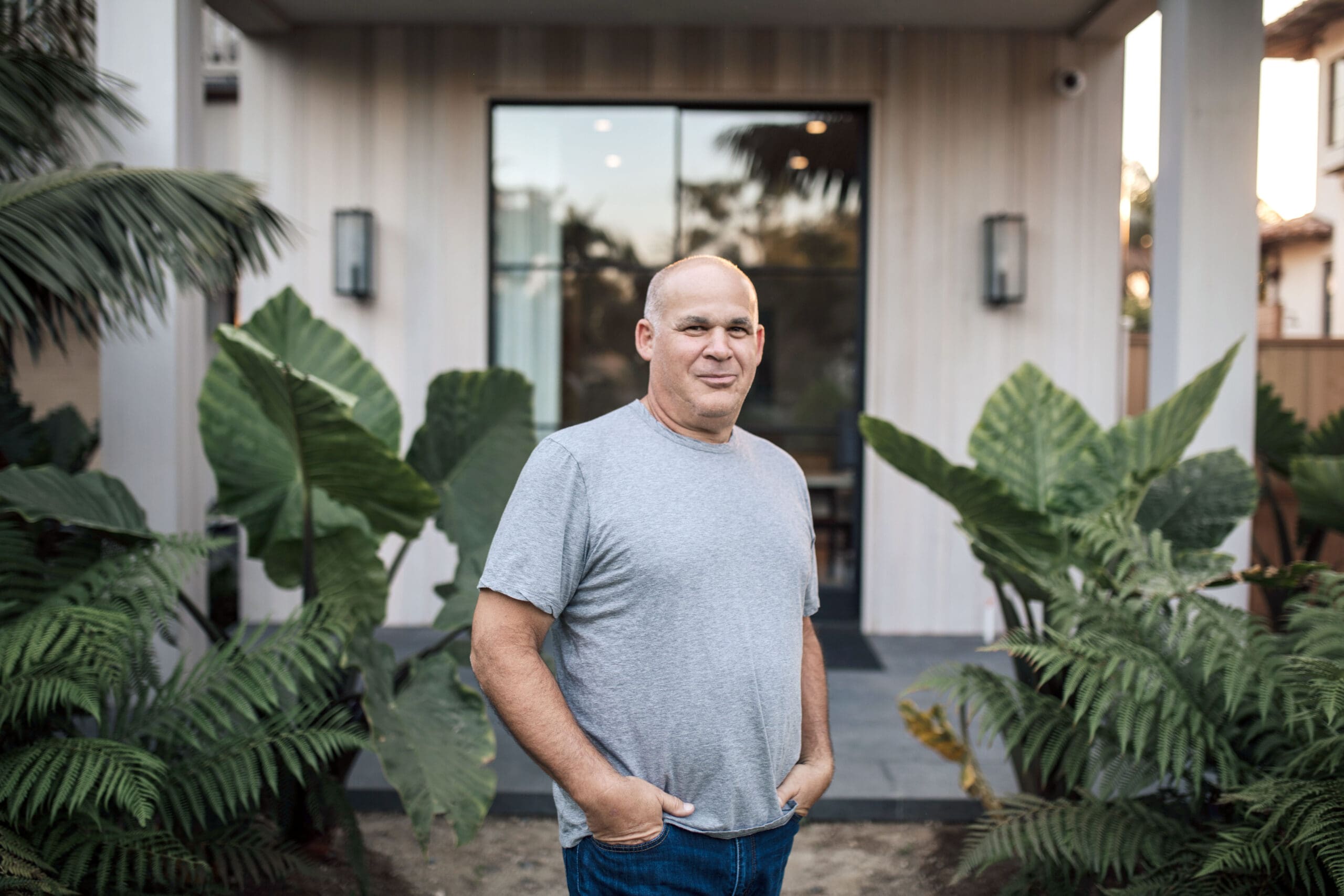
Richard Sperber is the executive chairman of Sperber Landscape Cos. He started in the industry working for his father’s company, ValleyCrest Landscape Cos. Sperber took on leadership of ValleyCrest in 2001 and grew it to more than 100 worldwide locations. He merged the company with The Brickman Group in 2014 to form BrightView. After a brief retirement, he founded Sperber Landscape Cos. in 2019.
When you first sold ValleyCrest, did you plan to return to the industry after the non-compete and start a whole new company?
Yes and no. When I left ValleyCrest I was focused on spending quality time with my family and working on some personal passion projects. Throughout those years, I’d hear from a lot of old colleagues and clients persuading me to get back into the business; there was a big hole in the industry to fill. Clients were looking for people and a company they can trust. Each message was like a seed planted that eventually pushed me into taking the steps necessary to start Sperber. I wanted our legacies and the families of our people to have something they could be proud of and be passionate about. The time off gave me a chance to really think about how to do it right. I wanted to build a home for employees where they could feel like they were part of creating something unique.
With your new company, why did you decide to acquire and partner with other brands in the industry?
One of the most important reasons that we chose this type of business model was to support owners who were ready to sell but didn’t have a solid legacy plan. After my own experience with selling a family company, I understood the emotional component of it. I know what it’s like to worry about what’s going to happen to your employees and the brand that you’ve worked so hard to build. We understand the value of a well-respected local brand and how sensitive a transition can be. We put a lot of emphasis on retaining each company’s unique culture and making sure there is as little disruption to day-to-day operations for employees and customers as possible. This model gives us the opportunity to grow a little faster because we’ve been able to bring back some really talented people who are passionate about making an impact.
What is some of the knowledge you’ve learned from the companies you’ve partnered with?
I’ve always known we had really great competition in the industry and there are a lot of businesses doing really great things. We’ve been able to bring on great partners that share our values, do great work and are proud of what they do. Every day, we learn something new from our partners and we’re here to mentor and help them grow.
How do you define success for your company since you don’t want to be numbers-driven?
How I define success is being able to do the right thing all the time for employees, customers, and vendors. Time should be spent in the trade of landscaping and doing the actual work versus focusing on all the other distractions that come with running a big business. Yes, we have to be profitable but concentrating on money and processes isn’t going to make you profitable; treating people fairly has always worked for us. Let’s face it, numbers are always a part of the success equation. Money is necessary for growth and to provide opportunities for our employees, which is our number one goal. We try to gauge success by looking at the company holistically. Great numbers are a result of fulfilled employees and happy customers, so that’s where we focus our attention.
What’s a lesson you learned from your father that you still practice in leading your company?
It’s all about the people; without them, there’s no us. It all starts with great field workers who have worked with us for generations and it’s up to us to make sure they have the opportunity to live better lives. We focus on hiring the right people and establishing a level of trust and confidence with them. I do my best to emulate this at Sperber and always do the right thing, especially when no one’s looking. We want our people to feel good about bringing their unique perspectives and talents to the company – hopefully creating more fulfilling careers.
What led your decision to step into the role of executive chairman?
This was a no-brainer. My job is to make sure we have plenty of opportunities for our people to learn and grown and it was time to hand the baton to the next generation to keep our legacy growing. Collectively, we’re focused on doing the right things and doing them right.
What has been your biggest challenge leading Sperber Landscape Cos?
We started Sperber six months before COVID and managing our way through those years of craziness has been the biggest challenge. Any new company is going to encounter some growing pains, but add on a worldwide pandemic and you are definitely kept on your toes. I’m lucky to have a team of leaders who are masters of pivoting. They’ve taken on each challenge head-on, and we’ve come out on the other side much stronger. Blending the cultures of 15 different companies comes with its own challenges, yet it has become a stimulating journey of strategic integration, ultimately creating an environment that is rich in diversity and experience.
Where do you see Sperber in the next five years?
We don’t look that far out, never have. We stay focused on what we’re doing every day and making sure we’re creating relationships with employees, clients and vendors that are built on trust and integrity. This certainly worked for us before!
What changes would you like to see in the industry?
I’d like to see the industry as a whole start a trade school where people can go and get hands-on learning about our trade in a 1-year program, whether it’s a branch manager, an account manager, tree care or irrigation tech. I’d like to see more visibility for landscaping as a viable and important career opportunity for young people. This creates an avenue to continue the trade with future generations and create a rich pool of talent for the industry to recruit from.
Taking a more proactive lead on environmental issues, the industry’s current emphasis on sustainability is critical and should continue to grow; I worry our industry is way behind on putting a stamp on environmental issues that impact our business. As an industry that is tasked with taking care of the earth, we each need to do our part to ensure a healthy planet for current and future generations.
I’d love to see a mentorship-type program where larger companies help startups that need support and mentorship to grow into successful landscaping businesses. This builds a stronger industry as a whole and can create more talent to keep the industry thriving.
What advice would you give to others trying to grow a successful business?
The most important thing is to love what you do and surround yourself with amazing people. Keep your focus on doing landscaping and being a great gardener – keep it really simple. The biggest change I’ve seen is that the industry has taken a really simple business model and made it much more complicated than it needs to be.
This article was published in the March/April issue of the magazine. To read more stories from The Edge magazine, click here to subscribe to the digital edition.



